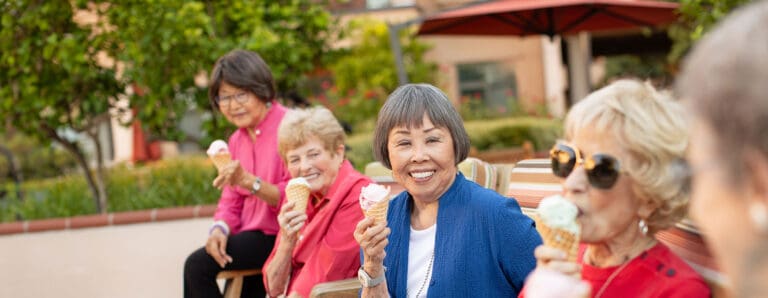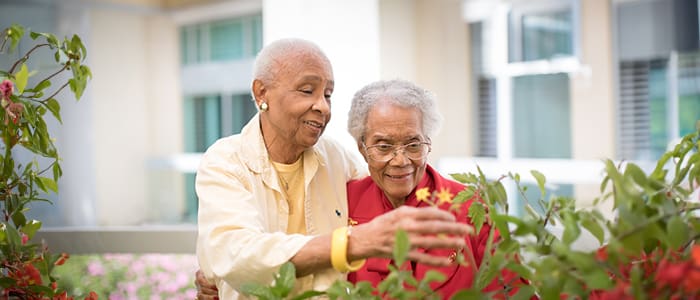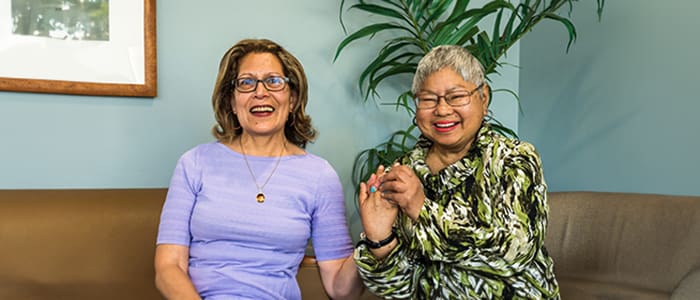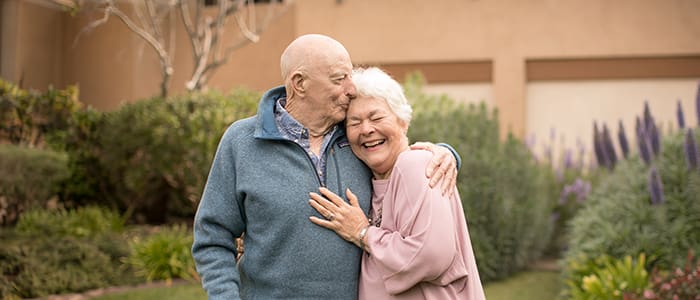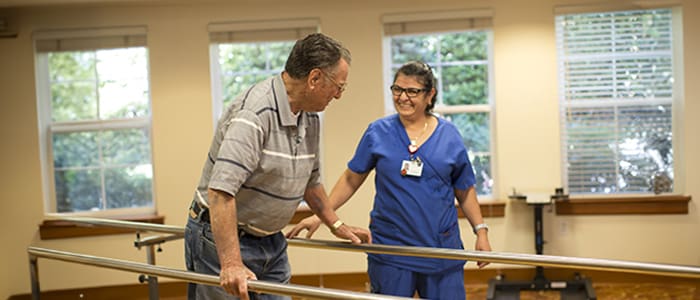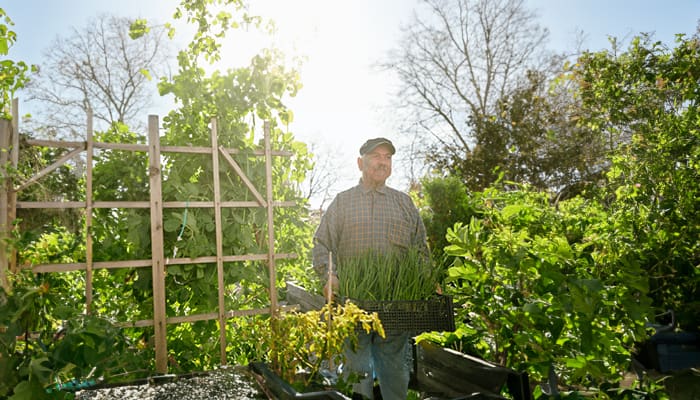October 25, 2021
Front Porch Chaplains Help Residents Explore the Many Facets of Spirituality
Samuel Schaar had not planned to be a chaplain. Prior to joining the team at Sunny View in Cupertino as the director of spiritual life, he served as a pastor in a local Methodist congregation. “I had served as a chaplain for one year in a hospital,” he said. “I cherished the experience of that year, because it was a tremendous season of growth and learning for me. My time spent as a chaplain in this community has continued that learning journey and I have come to love the role more and more.”
Twelve of Front Porch’s communities have a person on staff dedicated to spiritual care, though the titles may vary from chaplain to director of spiritual life to director of spiritual services. All have at least a master’s degree as well as specialized training, either through an internship or a program called Clinical Pastoral Education, or CPE.
Although the role of spiritual care may include leading religious services and coordinating worship services with resident faith groups, chaplains are trained to support people of all faiths – or no faith. Laura Mancuso, spiritual life director at Vista del Monte in Santa Barbara, explained, “I view my role as helping the residents connect with their personal sources of spiritual strength, whether that involves religion or not. I endeavor to accompany them through life’s difficult moments, so that they are not alone.”
Bev Franco, chaplain at Casa de Mañana in La Jolla, notes that one of the things people misunderstand about spiritual care is thinking that it is only about religion, or that it’s only for Christians. Instead, it’s about anything that brings meaning and purpose into someone’s life – relationships, nature, political causes or the sacred.
Spiritual care helps people “feel connected to the sacred, to nature and to each other, and recognizes the ways they can find meaning and purpose,” said Franco. “Although spiritual care is sometimes overtly religious, such as leading worship, Bible studies and memorial services, it is more often helping people who are lonely, bored, depressed and isolated.”
“What I love about my role is participating with residents as they reflect on the present through the lens of their life: work history, family, travel and their personal and communal search for meaning and purpose,” said Hans Hoch, chaplain at San Francisco Towers. These reflections may happen through groups and activities, or in one-on-one conversations, in settings that are formal or informal.
Listening is a major part of spiritual care. “There is a universal human need for being known and heard,” said Schaar. “Spiritual care provides opportunities for people to process major life experiences such as grief, loss, change and more through the lenses of meaning and spiritual truth.”
“I listen, and then I listen,” said Meredith Cahn, chaplain at St. Paul’s Towers in Oakland. “Spiritual care is about attending to the spirit of the residents: being present when they are in need, offering an open heart and presence; offering opportunities to create or identify meaning and purpose and connection; offering opportunities to express the full range of emotions.”
“So much of health care these days is so rushed and impersonal,” Mancuso said. “I take special pride in not hurrying people when they are in the middle of a delicate or significant process. Our visits are definitely not a ‘50-minute hour.’ And they can happen spontaneously, on the sidewalk or in the dining room, as well as in my office or the resident’s home.”
Spiritual care in a community also allows chaplains to build deep relationships with residents. In a hospital setting, chaplains need to be able to engage people rapidly and move on quickly, as they typically only participate in a person’s life for a matter of hours, days, or weeks at most. In Front Porch communities, because of the close relationships nurtured with residents across the years, “when something happens suddenly and I walk in the room, I already know the resident’s spiritual or religious orientation, and some of their quirks, and they’re likely to already trust me,” said Mancuso. As a result, “We can get to the heart of the matter very quickly, sometimes even without many words.”
“I love being involved in our residents’ lives in a deep way, beyond superficial talk, especially in liminal moments,” said Cahn. “I love being able to share spiritual wisdom and support, because they give me at least as much, if not more, than I give them.”
“I find that my connections with the residents deepen with every year that I’m at Vista,” said Mancuso. “What I cherish most about my role in my community is that the residents invite me in to their hearts during some of the most sensitive and challenging moments of their lives. They are incredible human beings! It’s a great privilege to accompany them on their life journeys.”
